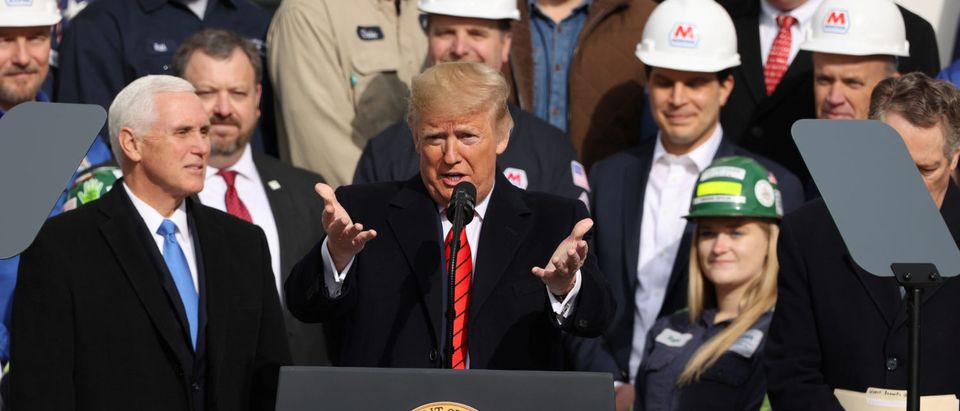President Donald Trump signed the United States-Mexico-Canada Agreement (USMCA) at the White House on Wednesday, declaring that he is “finally ending the NAFTA nightmare.”
The USMCA is a trade deal between the three countries that replaces the North American Free Trade Agreement (NAFTA), which was signed into law by President Bill Clinton in 1994. Trump campaigned on getting rid of NAFTA in 2016, calling it the worst trade deal in history and blaming it for the mass outsourcing of American manufacturing jobs. (RELATED: How Exactly Is Trump’s USMCA Trade Deal Different From NAFTA?)
JUST IN: President Trump signs the U.S.-Mexico-Canada trade agreement.
The USMCA represents a rare bipartisan achievement. The House passed it by an overwhelming 385-41 vote in December and the Senate followed with an 89-10 vote earlier this month https://t.co/qaxiGReWrP pic.twitter.com/li1ySD1H6d
— This Week (@ThisWeekABC) January 29, 2020
“Today, we are finally ending the NAFTA nightmare and signing into law the brand new US-Mexico-Canada Agreement,” the president said during Wednesday’s signing ceremony. “The USMCA is the largest, fairest, most balanced and modern trade agreement ever achieved.”
The USMCA has several measures aimed at protecting American workers and spurring economic growth, including requiring more automobile manufacturing in the U.S., balancing dairy imports and exports with Canada, and providing protections for Mexican laborers that will allow them to earn higher wages.
“This is a cutting-edge, state-of-the-art agreement that protects, defends, and serves the great people of our country,” Trump said.
The House of Representatives overwhelmingly passed the deal in December with a vote of 385-41. The Senate went on to pass the USMCA by a vote of 89-10 earlier this month. (EXCLUSIVE: GOP Sen. Kevin Cramer On How Trump Is Saving America’s Working Class)
Heading to the @WhiteHouse this morning to join @realDonaldTrump as he signs #USMCA.
I visited with the @DailyCaller’s @amber_athey about why @POTUS was uniquely prepared to deliver this and other trade victories for the American people. https://t.co/68Vfse9Iot
— Sen. Kevin Cramer (@SenKevinCramer) January 29, 2020
The bipartisan support for the deal was a huge win for the Trump administration amid the impeachment inquiry, as many Democrats who support impeaching the president also praised him for negotiating the new trade standards.
“It is infinitely better than what was initially proposed by the administration,” Speaker Nancy Pelosi said of the USMCA. “It’s a victory for American workers, and it’s one that we take great pride in advancing.”


